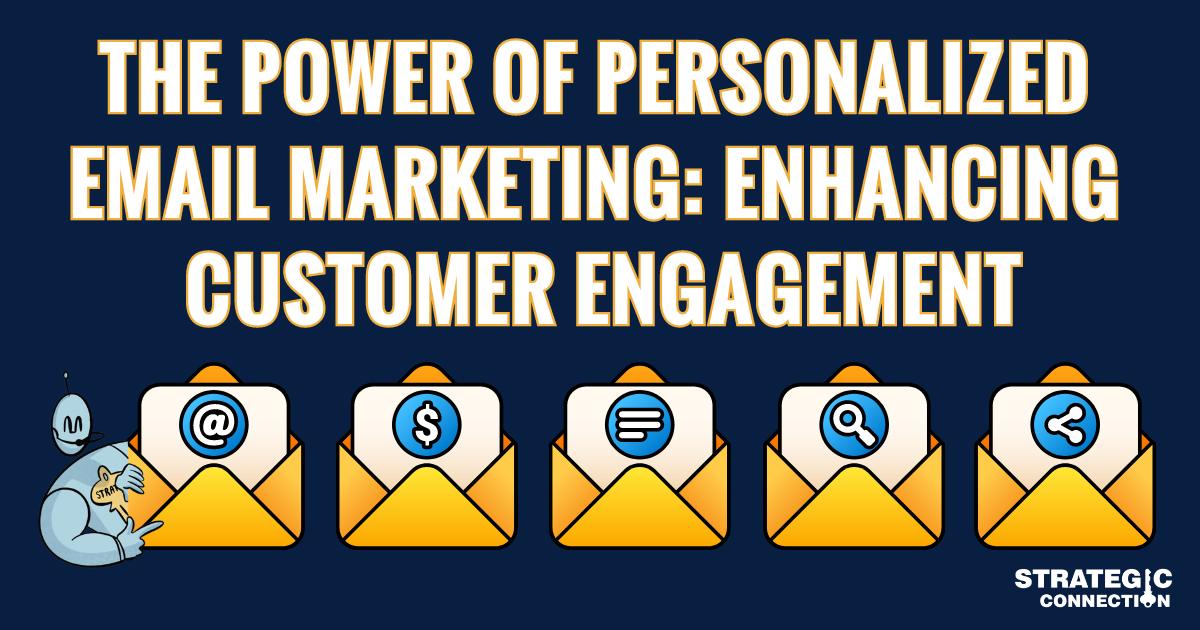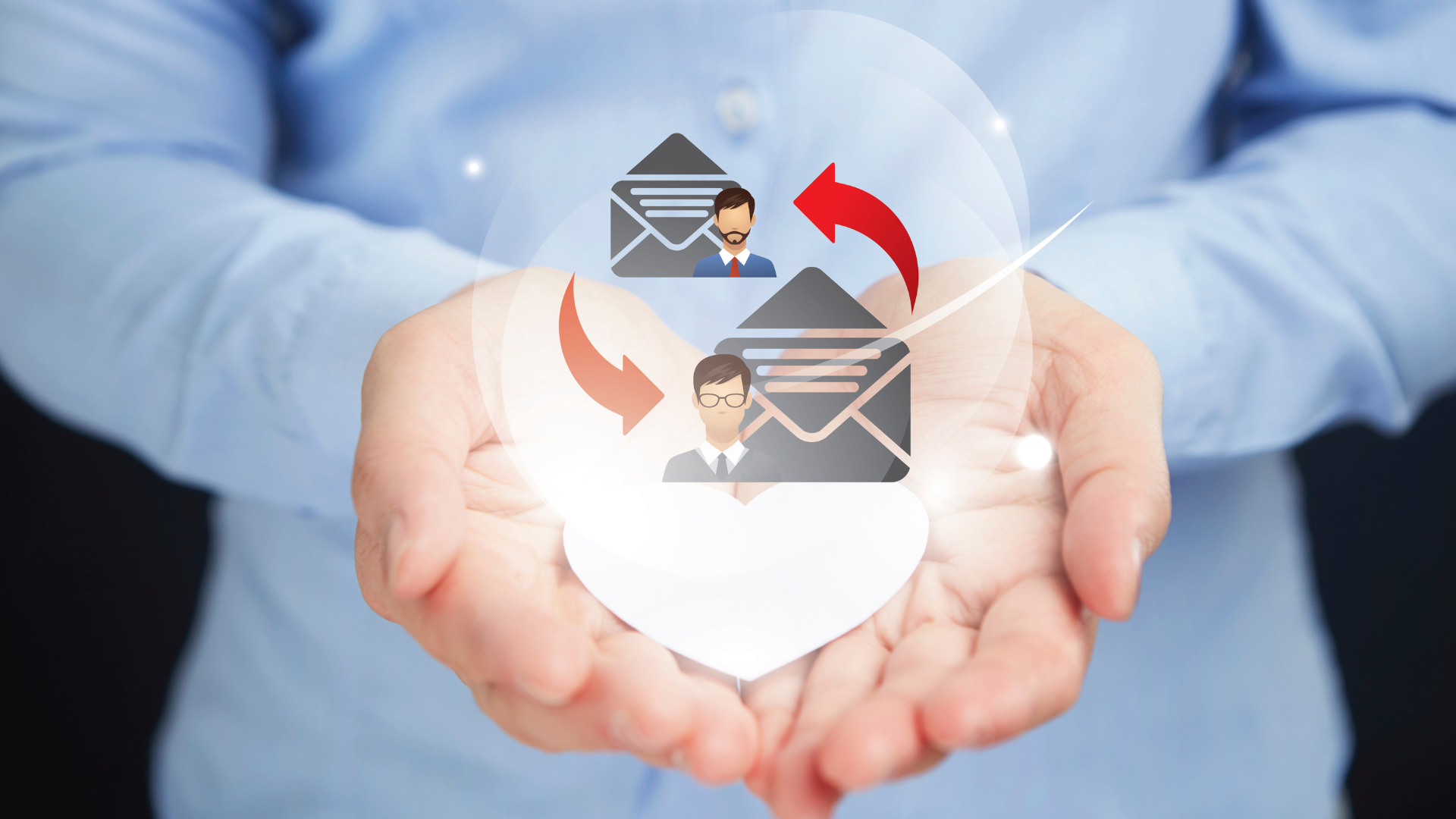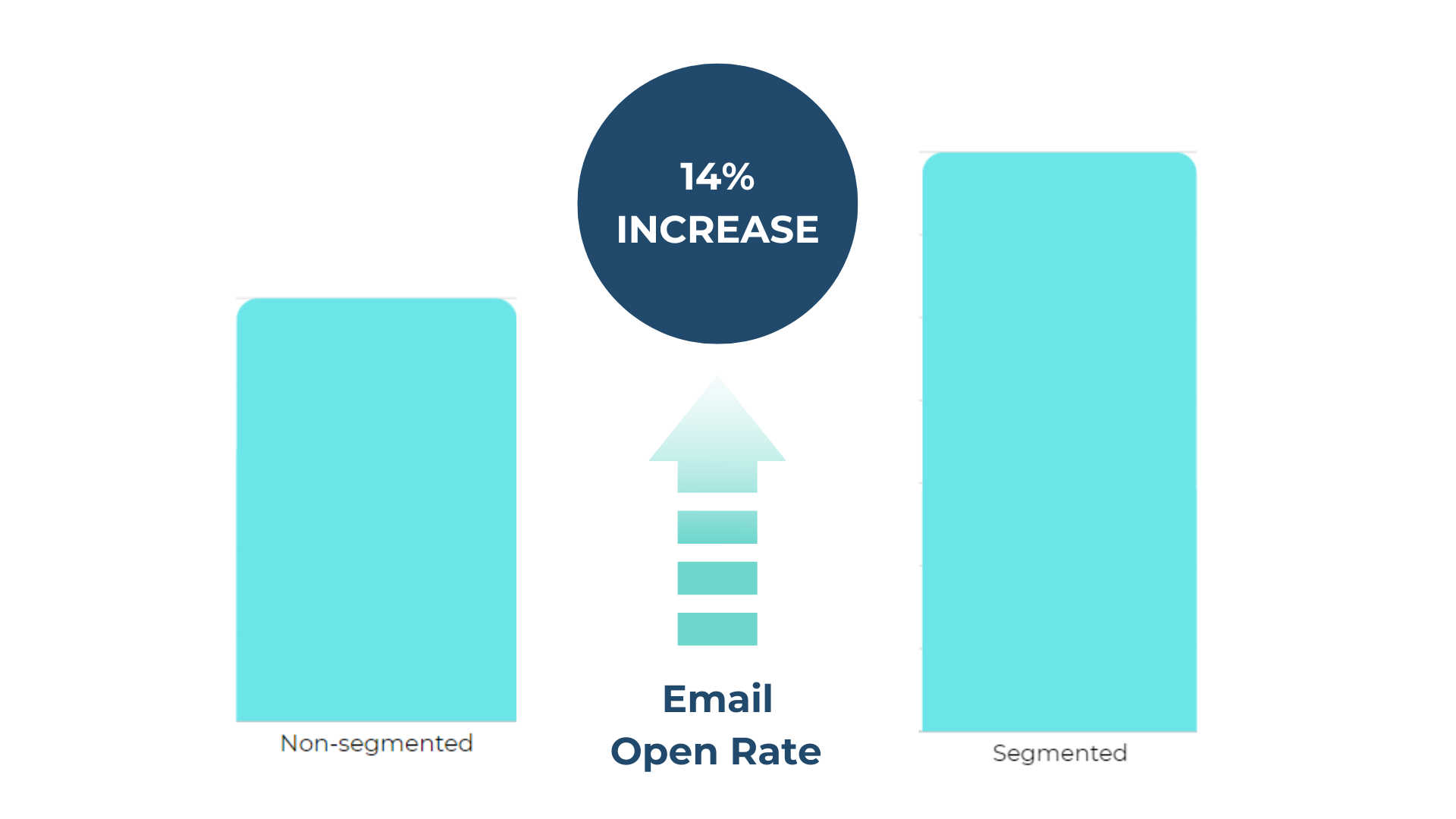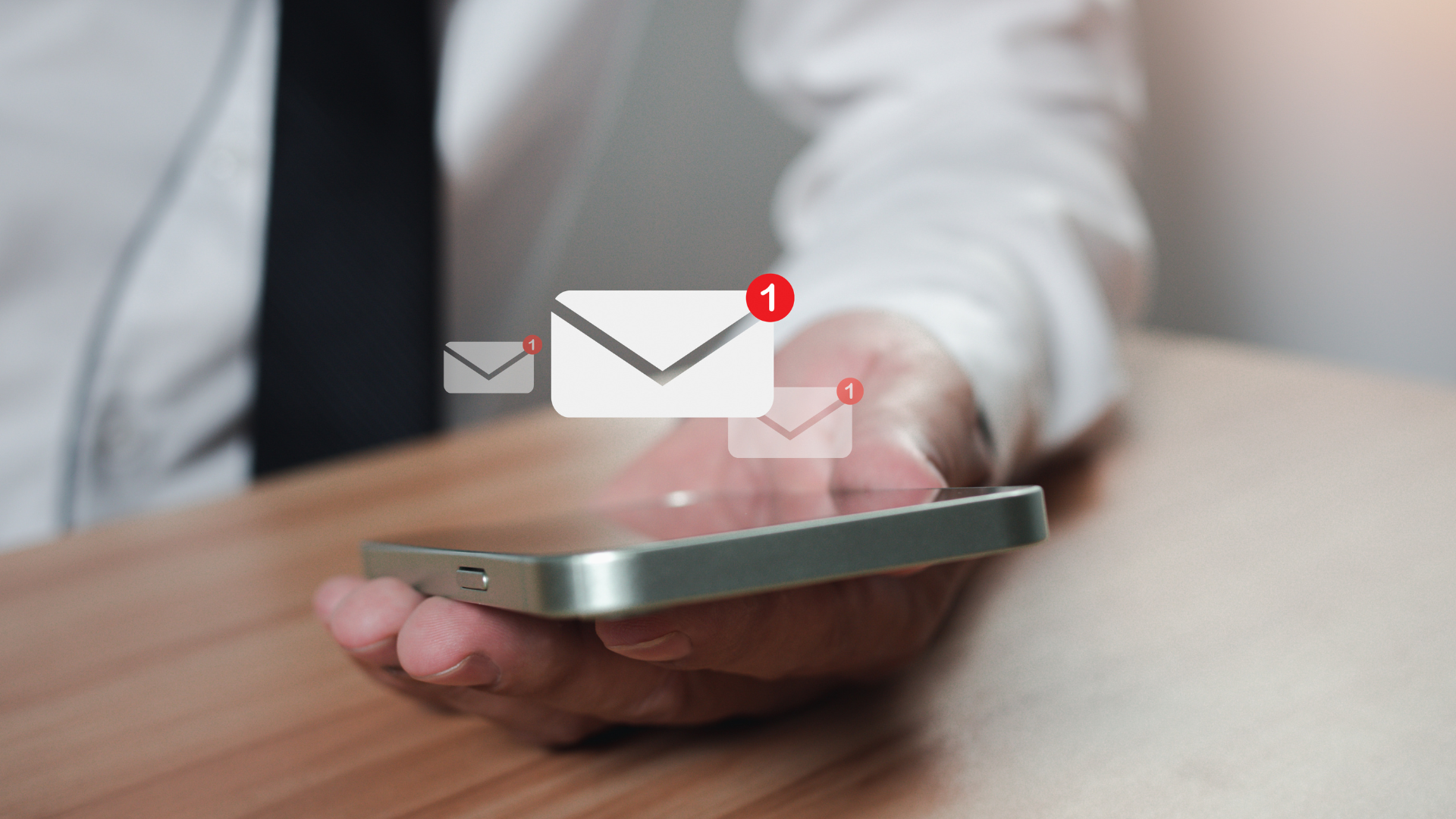
The Power of Personalized Email Marketing: Enhancing Customer Engagement
Posted by: Brianna Schoonover
September 25, 2024
In today's digital age, where consumers are bombarded with countless marketing messages across various platforms, standing out from the crowd has become more challenging than ever. Enter personalized email marketing, a powerful strategy that has revolutionized the way businesses communicate with their customers. By tailoring content to individual preferences and behaviors, personalized email marketing has proven to be an effective tool for enhancing customer engagement, driving conversions, and fostering long-term relationships with your audience.
Understanding Personalized Email Marketing
Personalized email marketing goes beyond simply addressing recipients by their first names. It involves creating highly targeted and relevant content based on a user's demographics, past purchases, browsing history, and other behavioral data. This approach allows businesses to deliver messages that resonate with each recipient on a personal level, increasing the likelihood of engagement and conversion.

The Benefits of Personalized Email Marketing
- Improved Open Rates: Personalized subject lines and content are more likely to catch the recipient's attention, leading to higher open rates.
- Increased Click-Through Rates: When emails contain relevant offers and content, recipients are more likely to click on links and explore further.
- Enhanced Customer Experience: By delivering tailored content, businesses can create a more enjoyable and valuable experience for their subscribers.
- Higher Conversion Rates: Personalized emails that address specific needs and interests are more likely to drive conversions and sales.
- Stronger Customer Relationships: By consistently delivering relevant content, businesses can build trust and loyalty with their audience.
Implementing Personalized Email Marketing Strategies
To harness the power of personalized email marketing, businesses need to implement effective strategies that leverage customer data and advanced technologies. Here are some key approaches to consider:
- Segmentation
One of the fundamental aspects of personalized email marketing is segmenting your email list based on various criteria. This allows you to create targeted campaigns for specific groups of subscribers. Some common segmentation criteria include: - - Demographics (age, gender, location)
- - Purchase history
- - Website behavior
- - Email engagement levels
- - Customer lifecycle stage
By segmenting your audience, you can tailor your messaging and offers to each group's unique characteristics and preferences. Research by MailChimp shows that segmented email campaigns have 14.31% higher open rates and 100.95% higher click-through rates compared to non-segmented campaigns. - Dynamic Content
Dynamic content is a powerful feature of personalized email marketing that allows you to display different content blocks within the same email based on the recipient's attributes or behaviors. This can include product recommendations, personalized offers, or location-specific information. By leveraging dynamic content, you can create highly relevant and engaging emails that speak directly to each subscriber's interests. - Behavioral Triggers
Behavioral triggers are automated emails sent in response to specific actions or inactions taken by subscribers. These can include: - - Welcome emails for new subscribers
- - Abandoned cart reminders
- - Post-purchase follow-ups
- - Re-engagement campaigns for inactive subscribers
By setting up behavioral triggers, you can deliver timely and relevant messages that guide subscribers through their customer journey. - Personalized Product Recommendations
Incorporating personalized product recommendations into your emails can significantly boost engagement and sales. By analyzing a subscriber's purchase history, browsing behavior, and preferences, you can suggest products that are likely to interest them. This not only enhances the customer experience but also increases the chances of cross-selling and upselling. A study by Barilliance found that personalized product recommendations can drive up to 31% of ecommerce revenues. - AI-Powered Personalization
Artificial Intelligence (AI) and machine learning technologies have opened up new possibilities for personalized email marketing. These advanced tools can analyze vast amounts of data to predict customer behavior, optimize send times, and generate personalized content at scale. By leveraging AI, businesses can take their personalization efforts to the next level and deliver highly targeted experiences to each subscriber. 
Best Practices for Personalized Email Marketing
To maximize the effectiveness of your personalized email marketing campaigns, consider the following best practices:
- Collect and Analyze Data: Gather relevant data about your subscribers through sign-up forms, surveys, and behavioral tracking. Regularly analyze this data to gain insights into your audience's preferences and behaviors.
- Use a Reliable Email Service Provider: Choose an email service provider that offers robust personalization features, including segmentation, dynamic content, and automation capabilities.
- Test and Optimize: Continuously test different elements of your personalized emails, such as subject lines, content, and offers. Use A/B testing to identify what resonates best with your audience and optimize your campaigns accordingly.
- Provide Value: Focus on delivering valuable content and offers that genuinely benefit your subscribers. Avoid over-selling and prioritize building long-term relationships.
- Optimize for Mobile: With 81% of emails now being opened on mobile devices according to SuperOffice, ensure that your personalized emails are mobile-responsive and easy to read on smaller screens.
- Monitor and Measure Performance: Regularly track key metrics such as open rates, click-through rates, and conversions to assess the effectiveness of your personalized email marketing campaigns. Use these insights to refine your strategies and improve results over time.

Overcoming Challenges in Personalized Email Marketing
While personalized email marketing offers numerous benefits, it also comes with its share of challenges. Here are some common obstacles and how to overcome them:
- Data Quality and Integration: Ensuring the accuracy and completeness of customer data can be challenging. Implement data cleansing processes and integrate your various data sources to create a unified customer profile.
- Scalability: As your subscriber list grows, maintaining personalization at scale can become complex. Invest in automation tools and AI-powered solutions to streamline your personalization efforts.
- Content Creation: Producing personalized content for multiple segments can be time-consuming. Develop a content strategy that allows for modular content creation and repurposing across different segments.
- Avoiding Over-Personalization: While personalization is powerful, it's essential to strike a balance and avoid coming across as intrusive. Respect your subscribers' privacy and preferences, and always provide an option to opt-out of personalized communications.
- Keeping Up with Changing Regulations: Stay informed about data protection regulations such as GDPR and CCPA, and ensure that your personalized email marketing practices comply with these laws.
The Future of Personalized Email Marketing
As technology continues to evolve, the future of personalized email marketing looks promising. Here are some trends to watch:
- Hyper-Personalization: Advanced AI and machine learning algorithms will enable even more granular personalization, tailoring content down to the individual level.
- Predictive Personalization: AI-powered systems will be able to predict customer behavior and preferences, allowing businesses to proactively deliver personalized content and offers.
- Cross-Channel Integration: Personalized email marketing will become more tightly integrated with other marketing channels, creating seamless and consistent personalized experiences across touchpoints.
- Interactive and Immersive Experiences: Emails will become more interactive, incorporating elements such as augmented reality (AR) and virtual reality (VR) to create immersive personalized experiences.
- Enhanced Privacy and Transparency: As data privacy concerns grow, personalized email marketing will evolve to prioritize transparency and user control over personal data.
Conclusion
Personalized email marketing is a powerful tool that enables businesses to connect with their audience on a deeper level. By leveraging customer data and advanced strategies, companies can create targeted campaigns that enhance engagement and drive results. The benefits of personalized email marketing—such as improved open rates, higher click-through rates, and stronger customer relationships—are significant.
As consumer expectations for relevant experiences continue to rise, personalized email marketing is no longer just an option; it’s a necessity for businesses aiming to thrive in the digital landscape. By embracing this approach, companies can foster meaningful connections with their audience and achieve their marketing goals effectively.
At Strategic Connection, we believe that personalized email marketing is crucial for enhancing customer engagement. Our tailored email marketing services go beyond generic messaging to create compelling content that resonates with specific audience segments. By maximizing open rates and driving conversions through effective storytelling and persuasive calls-to-action, we help businesses connect meaningfully with their customers. With our expertise, we transform email marketing into a powerful tool for building lasting relationships and fostering deeper engagement.
More blogs you may like to read:



